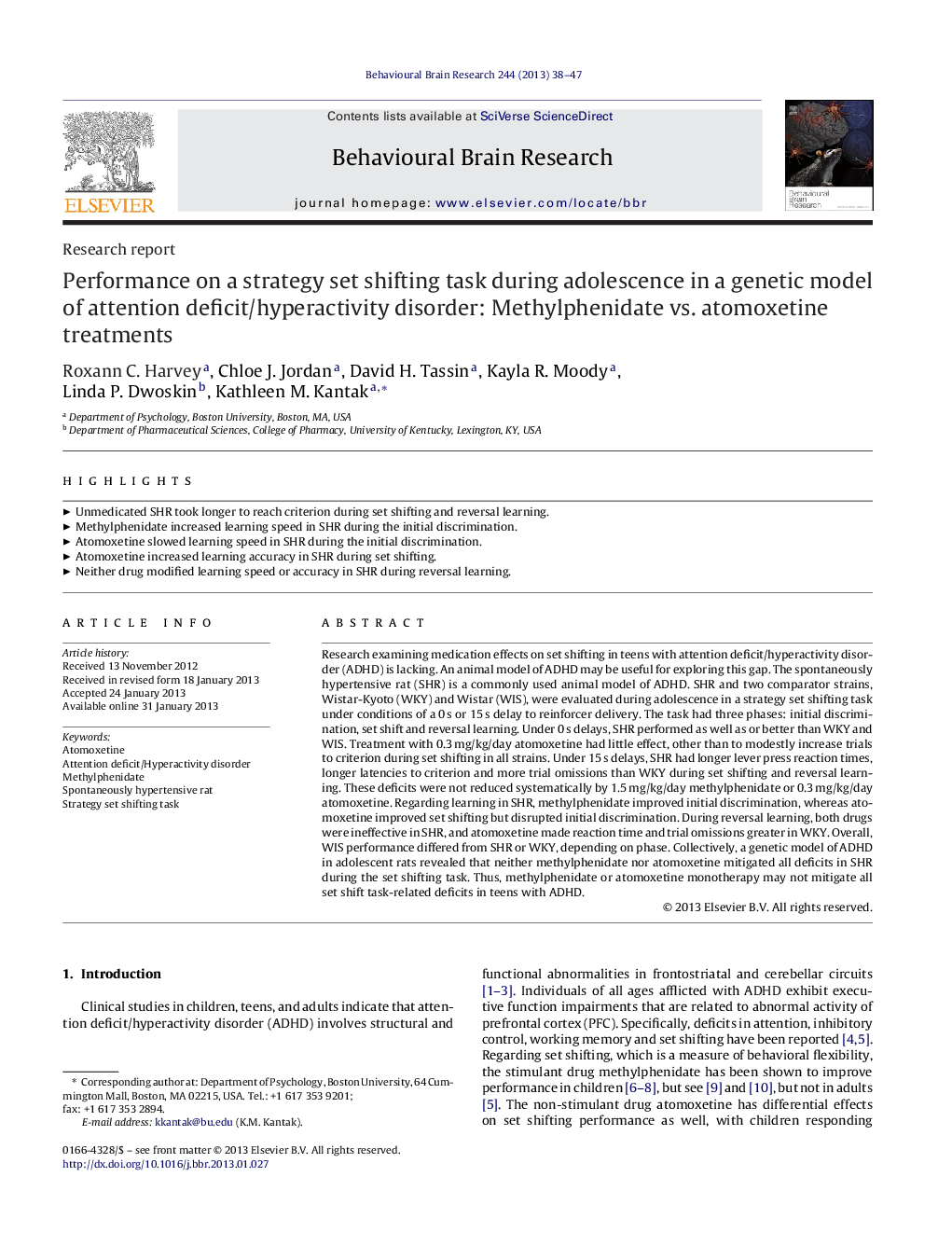| Article ID | Journal | Published Year | Pages | File Type |
|---|---|---|---|---|
| 4312728 | Behavioural Brain Research | 2013 | 10 Pages |
Research examining medication effects on set shifting in teens with attention deficit/hyperactivity disorder (ADHD) is lacking. An animal model of ADHD may be useful for exploring this gap. The spontaneously hypertensive rat (SHR) is a commonly used animal model of ADHD. SHR and two comparator strains, Wistar-Kyoto (WKY) and Wistar (WIS), were evaluated during adolescence in a strategy set shifting task under conditions of a 0 s or 15 s delay to reinforcer delivery. The task had three phases: initial discrimination, set shift and reversal learning. Under 0 s delays, SHR performed as well as or better than WKY and WIS. Treatment with 0.3 mg/kg/day atomoxetine had little effect, other than to modestly increase trials to criterion during set shifting in all strains. Under 15 s delays, SHR had longer lever press reaction times, longer latencies to criterion and more trial omissions than WKY during set shifting and reversal learning. These deficits were not reduced systematically by 1.5 mg/kg/day methylphenidate or 0.3 mg/kg/day atomoxetine. Regarding learning in SHR, methylphenidate improved initial discrimination, whereas atomoxetine improved set shifting but disrupted initial discrimination. During reversal learning, both drugs were ineffective in SHR, and atomoxetine made reaction time and trial omissions greater in WKY. Overall, WIS performance differed from SHR or WKY, depending on phase. Collectively, a genetic model of ADHD in adolescent rats revealed that neither methylphenidate nor atomoxetine mitigated all deficits in SHR during the set shifting task. Thus, methylphenidate or atomoxetine monotherapy may not mitigate all set shift task-related deficits in teens with ADHD.
► Unmedicated SHR took longer to reach criterion during set shifting and reversal learning. ► Methylphenidate increased learning speed in SHR during the initial discrimination. ► Atomoxetine slowed learning speed in SHR during the initial discrimination. ► Atomoxetine increased learning accuracy in SHR during set shifting. ► Neither drug modified learning speed or accuracy in SHR during reversal learning.
